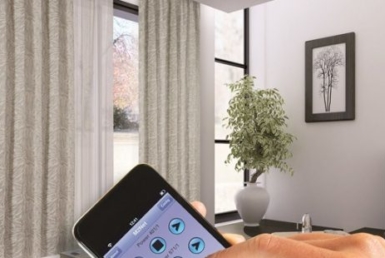How smart homes work?

Smart homes, or also known as the modern digital home, are not science fiction, they are a reality and today it is reachable for almost any pocket to automate different functions of home devices with the use of technology.
From Font Real State, as a real estate agency specializing in the purchase, sale and rental of exclusive properties in Barcelona, we have previously spoken about Prefabricated Houses and in this post we want to comment on what smart homes are, the use of home automation and applications, as well as which ones. are the most important advantages.
What are smart homes?
The concept of smart homes is to have a set of systems with technology that automate home installations, monitored and controlled remotely or by voice commands from an electronic device that can be a mobile phone, tablet or computer.
We already know that heating, lighting or many appliances can be controlled from one application.
With this, it is possible to reduce the consumption of electricity, gas and water, and improve the safety and comfort of the home. These systems can be run remotely or inside the home, with wireless or wired systems and their installation is minimal. The essential condition is to be connected to the internet with a very good Wi-Fi network for the whole house.
How do I make my home a smart home?
Having a smart home is becoming more and more accessible and useful. Currently, on the market, there is a varied offer from light bulbs and plugs to incorporating home automation in the architecture of a home.
It all depends on your needs. These are the most common:
- Control of alarms and surveillance of your home. You can see at all times what is happening inside or outside your home, in addition to activating or deactivating remotely.
- Smart locks. We can activate it with the mobile, a numerical code and even identification with fingerprints.
- Smart thermostats. It makes it easy to turn heating and air conditioning on and off and control the desired temperature at all times.
- Motion sensors.
- Smoke and flood detection with the possibility of closing or opening stopcocks from your mobile.
- Irrigation scheduling, as well as plant temperature control.
- Vacuum cleaners. Most models can be configured for different routines by rooms, or even quickly know which parts are more prone to crumbs, dust or pet hair, and be more persistent in those areas.
- Raise and lower blinds.
- Turn lights on or off.
- Control the switching off or on of smart appliances, as well as multimedia equipment (television, program recording, music equipment).
- Opening of the house door without the need for keys.
The use of applications in smart homes
Amazon, Apple, Xiaomi or Google are brands that are revolutionizing the use of technology for home automation through mobile phone applications to convert the smart home.
Traditional electronics companies such as Philips, Osram or Simon are providing solutions with their smart bulbs and plugs that are the first step to start creating a connected home.
On the other hand, Alexa (Amazon), Siri (Apple) and Google Assistant are the kings of smart voice assistants that not only allow you to listen to music but also control light bulbs, sockets or any other household appliance with which they are compatible.
The advantages and disadvantages of smart homes
Every day, the advantages of smart housing are increasing thanks to advances in technology creating an intelligent environment in the home, capable of perceiving what is happening inside and outside through sensors, detecting and then acting, depending on the case. to register.
Energy saving
The capacity of these systems for energy saving and efficiency is very important. Home automation systems allow much more efficient use of a home’s energy-consuming systems, thereby reducing energy consumption and therefore saving money.
Comfort
Smart homes increase home comfort and can save you from major headaches. Thanks to home automation you can select before you get home, from the water temperature before a shower to the lighting of the baby’s room. Calls from the intercom can be diverted to the mobile when no one is in the house or the refrigerator can send an SMS to the mobile if it detects the prolonged opening of the door when the temperature is above the values of its perfect operation.
Safety
A smart home can alert you in the event of burglary attempts, in the event of a water leak before the leak appears, just as it can detect fires before seeing the fire.
With smart homes, you can control the cameras in real-time from your mobile, wherever you are.
Although there are also some disadvantages, which we hope can be solved over time.
Lack of privacy
To become more efficient in smart homes, it is necessary to collect user data at all levels and in all aspects, so privacy is reduced.
A little familiarity with technology
Although we use smartphones, and as much as we say that we are in the middle of the digital age, it is undeniable that, even today, many people are still relatively unfamiliar with technology.
High cost
Converting our home into a totally and fully functional smart home means an investment in the different cutting-edge technologies and the installation of necessary elements, which can often come at a high cost.





Join The Discussion